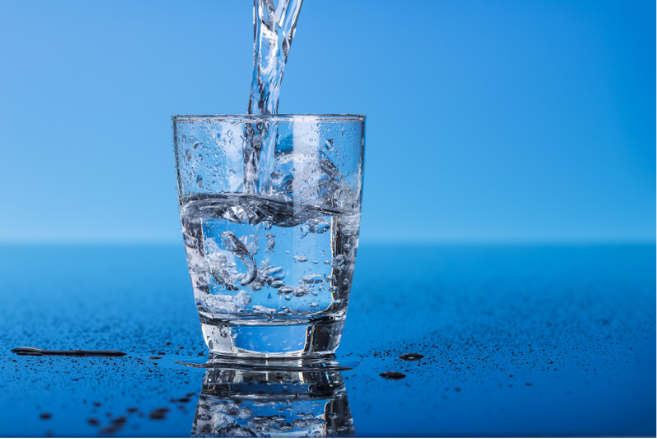Why You Required a Water Purification System for Clean, Safe Water
Why You Required a Water Purification System for Clean, Safe Water
Blog Article
Why a Water Purification System Is Vital for Tidy, Safe Water
Access to clean, safe water is a fundamental human right and a cornerstone of public health. The presence of hazardous impurities such as microorganisms, heavy metals, and chemical contaminants in our water supply raises significant issues regarding health and well-being. A water purification system stands as a critical remedy to reduce these dangers, guaranteeing that areas and individuals can access risk-free drinking water. Comprehending the details of these systems and their different methods is crucial, especially as we consider the ramifications for wellness outcomes and environmental sustainability in our lives.
Value of Clean Water
Accessibility to clean water is a basic requirement for human wellness and wellness. It is essential for sustaining life, supporting hygiene, and preserving total public wellness. Water Purification System. The schedule of risk-free drinking water considerably reduces the risk of waterborne diseases, which posture a significant threat to communities worldwide. Infected water can bring about significant health and wellness problems, including intestinal ailments, cholera, and dysentery, especially in susceptible populaces such as children and the senior.
Furthermore, tidy water is crucial for sanitation and hygiene methods, which are crucial in protecting against the spread of transmittable conditions. Ample water supply sustains correct sanitation centers, advertising a healthier setting. Furthermore, access to risk-free water influences socioeconomic elements, as it allows communities to take part in agricultural and commercial tasks, eventually adding to financial development.
In several regions, the lack of tidy water exacerbates destitution and inequality, further preventing progress towards lasting growth objectives. As a result, making sure access to tidy water is not just a public wellness vital but also a keystone for social equity and economic development. Initiatives to enhance water top quality and infrastructure have significant benefits, cultivating much healthier neighborhoods and boosting high quality of life.

Usual Pollutants in Water
Making sure the schedule of clean water is threatened by numerous contaminants that can jeopardize its security and quality. The visibility of microorganisms, such as germs, infections, and parasites, positions considerable health and wellness dangers, especially in areas lacking adequate hygiene. These bacteria can lead to waterborne conditions, leading to extreme illness or even fatality.
Chemical contaminants additionally present a critical worry. Heavy steels, consisting of arsenic, lead, and mercury, commonly enter water materials with commercial discharges or corroded plumbing. These substances can gather in the body gradually, resulting in long-term health issues such as neurological damage and developmental disorders.
In addition, farming drainage introduces chemicals and fertilizers right into water supply, which can interfere with environments and adversely effect human health. Nitrates, frequently located in fertilizers, can cause severe problems like methemoglobinemia, specifically in infants.
Advantages of Water Filtration Systems
Acknowledging the crucial requirement for safe alcohol consumption water, water filtration systems supply a myriad of benefits that enhance public health and ecological sustainability. Largely, these systems properly remove damaging pollutants, including germs, infections, heavy metals, and chemicals, ensuring that the water eaten is without virus and pollutants. This decrease in impurities substantially reduces the danger of waterborne illness, advertising total neighborhood health.
In enhancement to health and wellness advantages, water filtration systems add to ecological sustainability by reducing dependence on bottled water, which typically creates extreme plastic waste. By utilizing a filtration system, houses can lower their carbon impact and add to an extra lasting environment. In addition, these systems can enhance the preference and smell of water, making it a lot more tasty for everyday intake.

Different Sorts Of Purification Approaches

One typical method is reverse osmosis, which uses a semi-permeable membrane to different water from liquified pollutants and solids. This process effectively minimizes contaminations, consisting of hefty metals and chemicals. An additional widely used technique is ultraviolet (UV) sanitation, which utilizes UV light to counteract infections and microorganisms, making them safe without using chemicals.
Activated carbon purification is another prominent method, using carbon to adsorb natural compounds, chlorine, and undesirable odors, improving taste and odor top quality. Purification, a procedure that involves boiling water and condensing the steam, efficiently gets rid of minerals and click here for info contaminants but may call for more power compared to other approaches.
Ion exchange is commonly utilized to soften water by changing calcium and magnesium ions with salt or potassium ions. Each technique has its benefits and restrictions, making it necessary to understand their functionalities and performance in resolving details water high quality issues - Water Purification System. Eventually, choosing the ideal filtration approach is important for making certain clean and safe alcohol consumption water
Picking the Right System
Selecting a proper water purification system requires mindful consideration of numerous aspects, consisting of the specific contaminants present in the water supply, the quantity of water required, and the desired purification method. First, it is critical to conduct a water quality test to determine pollutants such as germs, heavy steels, or chemical pollutants. This info will guide you in picking a system that effectively targets those certain impurities.
Following, analyze your household's daily water usage to determine the system's capacity. Systems are offered in numerous dimensions, from point-of-use filters for drinking water to whole-house units that detoxify all water entering your home.
Furthermore, take into consideration the filtration approach that best fits your needs. For example, reverse osmosis is highly effective for getting rid of a vast array of pollutants, while UV filtration is outstanding for getting rid of microbes.
Conclusion
Finally, the execution of water purification systems is important for making sure accessibility to safe and clean water. These systems successfully remove unsafe pollutants, thereby reducing the risk of waterborne conditions and improving public health and wellness. In addition, they add to ecological sustainability by lessening reliance on mineral water. By understanding the significance of clean water and the benefits of different purification techniques, areas can make informed decisions to guard their health and advertise socioeconomic stability.
Acknowledging the crucial demand for risk-free drinking water, water filtration systems offer a myriad of benefits that boost see this website public wellness and ecological sustainability.In addition to health and wellness advantages, water filtration systems contribute to environmental sustainability by reducing reliance on bottled water, which usually creates excessive plastic waste. Eventually, the adoption of water purification systems is a positive action towards guaranteeing clean, secure water for future generations while protecting public wellness and the atmosphere.
Selecting an ideal water purification system needs mindful factor to consider of numerous factors, consisting of the certain pollutants existing in the water supply, the quantity of water required, and the wanted purification method.In conclusion, the execution of water filtration systems is crucial for ensuring accessibility to safe find more information and tidy water.
Report this page